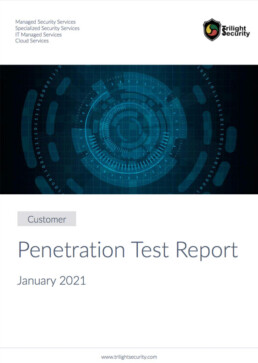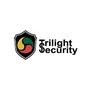The current landscape of cyber threats has made cybersecurity a top priority not just for large enterprises, but also for small and medium-sized businesses (SMBs). Threat actors, equipped with skilled engineers, developers, and AI capabilities, complicate the task of protecting the digital assets of legitimate businesses and organizations. Understandably, they must put in maximum effort to maintain an efficient cybersecurity posture, but the global shortage of cybersecurity talent doesn't make things easier. However, there is a solution: White Label SOC service. Let’s discuss it in more detail.
One of the most sought-after cybersecurity services today is online security monitoring, usually provided through Security Operation Centers (SOCs). SOCs act as a hub to help deal with security incidents. While many large businesses or organizations with specific regulatory requirements run their own SOCs, it involves significant capital and operational expenses. Consequently, more organizations are turning to Managed Security Service Providers (MSSPs) for prompt and efficient cybersecurity services.

SOC-as-a-service is a key component of the standard MSSP offering. However, not all MSSPs or Managed Service Providers (MSPs), where cybersecurity might be just one element of their services portfolio, are willing to invest in their SOCs for various reasons. Instead, they often choose a White Label SOC service. In essence, this means that a specialized cybersecurity company provides MSSPs or MSPs with a ready-made SOC solution that includes people, technology, and processes. MSSPs or MSPs brand this platform accordingly to offer SOC services to their end clients.
This three-way partnership brings numerous benefits to all parties involved. Let's explore the advantages experienced by MSSPs/MSPs using the White Label SOC service.
White Label SOC Benefits
Cost Savings
- Implementing and maintaining an internal SOC demands substantial financial resources. Opting for a White Label SOC service is a great way to minimize or even eliminate the investments needed to offer SOCaaS to external clients. The provider of the White Label SOC covers all operational expenses, allowing the MSSP/MSP partner using this service to save significant amounts in the short, medium, and often long term.
Access to Expertise
- Building a qualified team of Tier I, II, III security analysts and other SOC personnel is a complex task that requires a considerable amount of time, money, and organizational effort. If an MSSP/MSP does not already have its own SOC, the most viable option is to acquire it through a White Label SOC service. Operational expenses on the outsourced SOC team will always be much lower compared to building an in-house team, as there is no need to invest in their training.
Rapid Deployment and Scalability
- Establishing an internal SOC is a time-consuming process, even for IT service providers. With the swift emergence of new threats, changes in compliance requirements, and the growing demand for online security monitoring and MDR services, MSSPs/MSPs often lack the time to build their own SOCs. The White Label SOC service offers a unique opportunity to introduce the service quickly and scale up or down based on end customers' demand – a flexibility not easily achieved with an in-house SOC.
Portfolio Enhancement
- Choosing a White Label SOC service partner wisely can lead to acquiring more than just one service. Outsourced services like White Label Penetration Testing, vulnerability assessments, network security, compliance consulting, and more can enhance the partner's capabilities in meeting the cybersecurity demands of its end clients.
Deep Integration
- The integration of a White Label SOC service into the operations of the MSSP/MSP is multi-faceted. From the end clients' perspective, the service will be fully branded and represented as owned and operated by the partner. The platform will bear the partners' logo, and SOC team members will communicate using the partner's domain and communication platforms. From the MSSP/MSP's perspective, the SOC platform can be deeply integrated with its other IT/Cybersecurity solutions, and the outsourced personnel can engage in additional activities beyond SOC responsibilities. This high level of integration provides maximum benefits for the partner choosing the White Label SOC service, extending beyond standard boundaries.

White Label SOC Pricing Overview
White Label SOC pricing is typically tailored for each partner, and while there are standard packages, they often come at a lower cost compared to MSSP pricing. The actual pricing, however, is influenced by the specific requirements of the MSSP/MSP seeking this service.
- Pricing Model Agreement: Partners need to agree on the pricing model, whether it's based on devices, users, traffic, or the number of events. Pricing by device and user is commonly preferred for better predictability.
- Service Inclusions: Partners must decide on the core list of services and add-ons, as this choice directly impacts the pricing. For example, considerations should be made regarding whether vulnerability assessments or white label pentesting should be part of the core package.
- End Customer Size: Discussions about the expected size of end customers in the short- and medium-term are essential. This information affects rates per user or device.
- Custom Packages: If end customers have specific infrastructure or unique needs (such as a large industrial enterprise with extensive OT or a large educational establishment with thousands of campus students), custom-made packages with special pricing may need to be negotiated. A standard approach to Managed Security Service Provider pricing might require significant adaptation in such cases.
Like any complex cybersecurity service, choosing a White Label SOC partner requires careful consideration and thorough negotiation of partnership terms. However, once these stages are completed, MSSPs and MSPs leveraging the White Label SOC gain a strategic advantage in meeting the demands of their end clients seeking protection against modern cybersecurity threats.

No comments yet